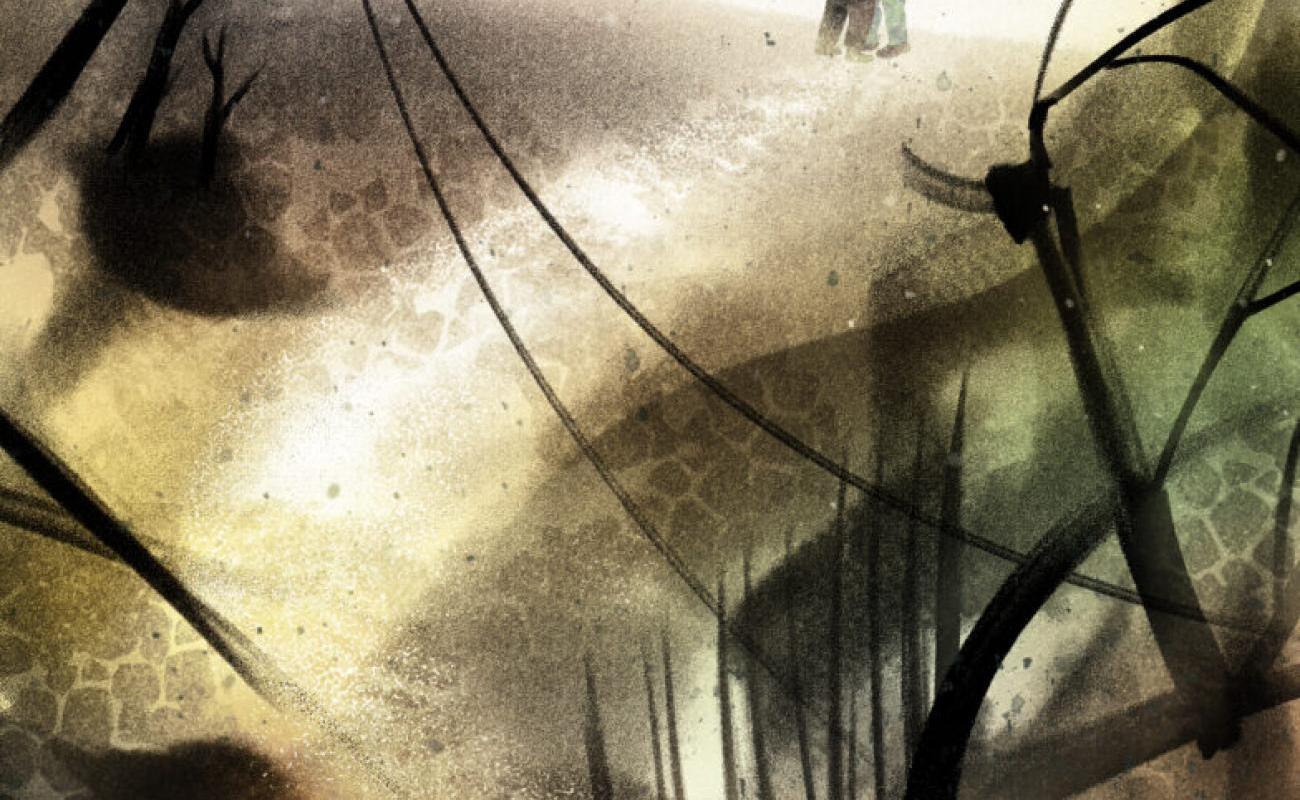More than 19,000 kids have been deported to Russia. Their parents are trying to bring them back, one child at a time.

In the yard of a local church in Kyiv, a gray minivan arrives, brandishing the sign “Evacuation. Children.” The doors are flung open and out jumps a fiery-haired woman in her 40s: Oksana Galkina.
“I got her! I finally brought my Liza back,” she screams happily as she spots the volunteers of Save Ukraine, the NGO that assisted her in carrying out the most formidable mission she’s ever embarked upon: rescuing her 16-year-old daughter, Liza, from the Russian-occupied territories of Ukraine.
In the company of a dozen other parents and legal guardians of kidnapped children, Galkina journeyed through the European Union, to Russia, and then into the Russian-occupied southern territories of Ukraine, finally returning back home. Their goal? Reclaiming the children Russia had wrenched from their arms.
Galkina’s story offers a glimpse at one of the horrors of the Ukrainian war: The forced transfer of thousands of children from Ukraine to Russia or Russian-occupied territories. While the exact numbers involved remain uncertain, according to the Organization for Security and Co-operation in Europe (OSCE), the Ukrainian government has identified more than 19,000 children it says were deported to Russia. Liza is one of just 371 children that organizations like Save Ukraine and Ukraine’s Ombudsman’s Office have managed to rescue.
Russia acknowledges it has transferred children from Ukraine, arguing it is saving them from the horrors of war or facilitating the adoption or fostering of orphans. But the OSCE has documented nonconsensual evacuations it says amount to war crimes, and the International Criminal Court (ICC) in The Hague has issued arrest warrants for Russian President Vladimir Putin and his commissioner for children’s rights, Maria Lvova-Belova, for their role in what the court says is an ongoing war crime.
“Whatever the form of placement, Ukrainian children find themselves in an entirely Russian environment, including language, customs and religion and are exposed to [a] pro-Russian information campaign often amounting to targeted re-education as well as being involved in military education,” the OSCE said in a recent report. “The Russian Federation does not take any steps to actively promote the return of Ukrainian children. Rather, it creates various obstacles for families seeking to get their children back.”
Which is exactly what Galkina discovered after her daughter was abducted from the Ukrainian city of Kherson.
‘They proclaimed her an orphan’
Liza’s odyssey began in the fall last year after her mother agreed to allow her to live in the dorm of the local college where she had started studying to be a pastry chef. Kherson and the surrounding region were then under Russian occupation.
A week after the start of classes, Galkina decided to visit her daughter. To her despair, she discovered that Liza, along with dozens of other children, was missing. “Through a social service, I discovered that they all have been taken to Crimea for vacation,” she recalled. “But I did not give my permission for it.”
The so-called vacation, initially meant to last two weeks, stretched into three months. Liza was then relocated to Genichesk, a city in the occupied Ukrainian region of Zaporizhzhia, to resume her studies. “They threatened her that if she didn’t go, they would confine her in the basement,” Galkina said.
Through the help of her daughter’s friends and classmates who had smartphones, Galkina was able to find Liza on social media. Liza now had a Russian cell phone operator and had been offered Russian citizenship, which she refused. After spending another eight months in Genichesk, far from her mother and her home in Kherson, the unthinkable happened: “They proclaimed her an orphan,” Galkina recalled.
Liza’s experience matches a pattern mapped out by human rights watchdogs and organizations like the OSCE and the ICC. Since the international arrest warrants for Putin and Lvova-Belova were issued in March, Lvova-Belova has denied that Russia attempts to deprive children of the Ukrainian language and citizenship and said that the country tries to reunite children with their family members.
